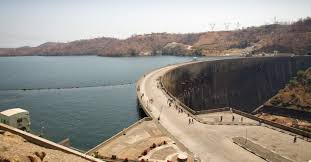Zimparks moves to conserve Kariba fish
THREE weeks of long nights in water and one week out of water is the monthly routine
for kapenta fishermen on Lake Kariba.
The catch nowadays is generally low owing to various reasons such as climate change,
overfishing and fishermen’s lack of capacity.
To help control the over-harvesting of fish, Zimbabwe Parks and Wildlife Management
Authority (Zimparks) and their Zambian counterparts introduced a Full Moon Calendar
which suspends all rig fishing in the river during the last seven days of each month in
Zimbabwe and last 10 days of the month in Zambia.
During the break, fishermen visit their families or do other jobs to complement what
they get from the kapenta fishing business.
Most of the fishermen on the lake leave their wives and children to work on the fields as
they are in the water for the greater part of the year.
A few are, however, staying with their families at the camps dotted along the great lake.
Lake Kariba is divided into five basins in terms of fishing.
These are Basin 1, which stretches from Sebungwe mouth near Mlibizi in Binga and
covers Simatelele up to Binga beach closer to the aerodrome, from where Basin 2 starts
and ends on the other side of Binga Centre at Chete Park.
Basin 3 starts from Chete through Mujele, Kamakuyu, Sengwa Island up to Narrow Gorge
where Basin 4 begins at Chalala while Basin 5 is right in Kariba.
Each basin is allocated a number of rigs as a way of maintaining order in the industry and
preventing overfishing.
The fishing rigs are operated by either organisations, individuals or fishing cooperatives.
Last year President Mnangagwa donated 17 fishing rigs to chiefs, women and youths in
Binga as part of the Government’s empowerment initiatives and these have been spread
across the five basins.
Kapenta fishing has become less attractive these days as fishermen spend long nights on
the lake with low catches.
A recent visit to the docking area in Binga by a Chronicle news crew showed that there
were over 30 rigs on the edge of the river, with a few people guarding the property while
many were said to be away.
It was a full moon when fishing is prohibited to allow breeding.
Boats only entered water last Saturday to start another cycle of long nights.
Mr Thompson Mumpande, who operates a family boat, said business is at its lowest.
Lake Kariba
“Sometimes we just dock and guard the boats because the expenses are way more than
what we catch. There are many boats now competing for the few kapenta in the lake and
we hope stocks will increase this rainy season since water levels have gone up,” said Mr
Mumpande.
He said nowadays a boat can harvest a maximum of five bags per month, which does not
cover the monthly expenses.
Mr Phinias Mumpande who was guarding his employer’s boat said the fishing expedition
starts at 5PM until 6AM when they dock at the nearest island to dry whatever they would
have caught and wait for the next night.
“Sometimes when we don’t catch anything. I go home to do other work because I have a
family to feed. Kapenta fishing is slowly becoming unsustainable,” he said.
Chairperson of the Binga Fisheries Association, which comprises those who operate
between Basins 1 to 3, Mr Bernard Munsaka, who is also vice president of the Zimbabwe
Kapenta Producers Association, said a rig can harvest eight by 30kg bags of kapenta per
month.
kapenta fish
This does not cover monthly expenses which include permit fees, fuel, salt for drying the
fish, food and salaries for crew and fishermen, transport and other expenses.
Zimparks charges US$1 200 per year per boat and the fees are spread over the year.
“We resumed fishing for the month on Saturday, but water levels have gone too high
especially in Basins 1 and 2. Basin 3 is still better because the river is not as muddy as in
Basin 1 and 2.
“Fishing is our source of income and we have situations whereby those from closed
basins can be transferred to others which is okay because they need money to pay for
permits and take care of their families. Fishing is now unsustainable because there are
now too many boats and few kapenta,” said Mr Munsaka.
The BaTonga have since time immemorial anchored their lives on farming on the banks
of the Zambezi River and catching fish for relish and trade as a way of earning a living.
As a result of climate change, the river gets low during the dry season and catches drop.
Low fishing season is usually between August and December when water levels are low.
The fishermen want Government to intervene and closely monitor invasion of prohibited
areas especially by Zambians whom they accuse of fishing in breeding zones.
“We submit returns every month and we expect Government to protect us,” said Mr
Munsaka.
Binga Kapenta fishing expedition
“The boat takes more than a week on water and comes back to refuel and goes for a
similar period when it will come back to dock for a week during full moon. The highest
catch can be eight bags per month during a good season.”
He said while Zimbabwean fishermen abide by regulations not to use less than 8mm nets
and not to fish in breeding areas, Zambians always flout the rules resulting in haphazard
fishing.
Kapenta is a delicacy eaten by most Zimbabweans and is also served as a snack in hotels.
It is a very healthy food with rich protein and low levels of saturated fat. – The Chronicle











